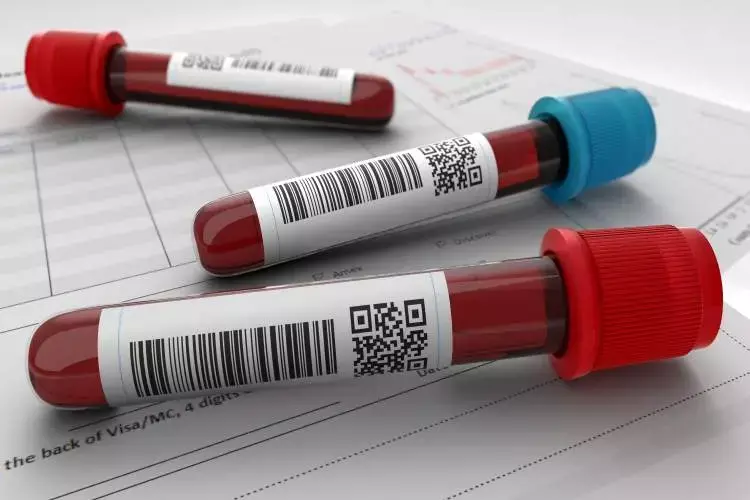- Home
- Medical news & Guidelines
- Anesthesiology
- Cardiology and CTVS
- Critical Care
- Dentistry
- Dermatology
- Diabetes and Endocrinology
- ENT
- Gastroenterology
- Medicine
- Nephrology
- Neurology
- Obstretics-Gynaecology
- Oncology
- Ophthalmology
- Orthopaedics
- Pediatrics-Neonatology
- Psychiatry
- Pulmonology
- Radiology
- Surgery
- Urology
- Laboratory Medicine
- Diet
- Nursing
- Paramedical
- Physiotherapy
- Health news
- Fact Check
- Bone Health Fact Check
- Brain Health Fact Check
- Cancer Related Fact Check
- Child Care Fact Check
- Dental and oral health fact check
- Diabetes and metabolic health fact check
- Diet and Nutrition Fact Check
- Eye and ENT Care Fact Check
- Fitness fact check
- Gut health fact check
- Heart health fact check
- Kidney health fact check
- Medical education fact check
- Men's health fact check
- Respiratory fact check
- Skin and hair care fact check
- Vaccine and Immunization fact check
- Women's health fact check
- AYUSH
- State News
- Andaman and Nicobar Islands
- Andhra Pradesh
- Arunachal Pradesh
- Assam
- Bihar
- Chandigarh
- Chattisgarh
- Dadra and Nagar Haveli
- Daman and Diu
- Delhi
- Goa
- Gujarat
- Haryana
- Himachal Pradesh
- Jammu & Kashmir
- Jharkhand
- Karnataka
- Kerala
- Ladakh
- Lakshadweep
- Madhya Pradesh
- Maharashtra
- Manipur
- Meghalaya
- Mizoram
- Nagaland
- Odisha
- Puducherry
- Punjab
- Rajasthan
- Sikkim
- Tamil Nadu
- Telangana
- Tripura
- Uttar Pradesh
- Uttrakhand
- West Bengal
- Medical Education
- Industry
High BUN-to-Creatinine ratio improves in-hospital survival of critical patients of cardiogenic shock

China: In a new study conducted by Di Sun and the team it was shown that regardless of acute kidney injury (AKI) status, a high BUN-to-Cr ratio (BCR) was associated with better in-hospital survival for patients with cardiogenic shock (CS). The findings of this study were published in BMC Cardiovascular Disorders.
Cardiogenic shock is defined as insufficient forward tissue perfusion and severe reverse congestion caused by cardiac pump inefficiency. Despite recent advances in critical care unit technology and therapy for CS, the in-hospital death rate remains high. Regardless of the fact that blood urea nitrogen (BUN) and serum creatinine concentration (Cr) are commonly monitored in everyday clinical practice, the BUN-to-Cr ratio for prognosis in patients hospitalized with cardiogenic shock is unclear. As a result, the current study was carried out to evaluate the predictive efficacy of BCR on CS.
Data for patients with CS were gathered from the Medical Information Mart's public database for Intensive Care-III (1137 individuals with CS, including 556 in the low BCR (20) group and 581 in the high BCR (20) group). In-hospital mortality was the primary outcome.
The key findings of this study were as follows:
1. In the multivariate Cox model and Kaplan–Meier curve, researchers discovered that high BCR was independently related to significantly better in-hospital survival for CS compared to low BCR.
2. The advantage of high BCR on in-hospital survival for CS persisted across AKI and non-AKI categories.
"In patients with CS, a greater level BCR at admission was independently connected with decreased in-hospital mortality. Meanwhile, whether patients had AKI or not, the robust outcome of in-hospital survival for the high BCR group remained consistent. These findings must be validated in the future by a major prospective experiment," said the authors.
Reference:
Sun, D., Wei, C., & Li, Z. (2022). Blood urea nitrogen to creatinine ratio is associated with in-hospital mortality among critically ill patients with cardiogenic shock. BMC Cardiovascular Disorders, 22(1), 258. https://doi.org/10.1186/s12872-022-02692-9
Neuroscience Masters graduate
Jacinthlyn Sylvia, a Neuroscience Master's graduate from Chennai has worked extensively in deciphering the neurobiology of cognition and motor control in aging. She also has spread-out exposure to Neurosurgery from her Bachelor’s. She is currently involved in active Neuro-Oncology research. She is an upcoming neuroscientist with a fiery passion for writing. Her news cover at Medical Dialogues feature recent discoveries and updates from the healthcare and biomedical research fields. She can be reached at editorial@medicaldialogues.in
Dr Kamal Kant Kohli-MBBS, DTCD- a chest specialist with more than 30 years of practice and a flair for writing clinical articles, Dr Kamal Kant Kohli joined Medical Dialogues as a Chief Editor of Medical News. Besides writing articles, as an editor, he proofreads and verifies all the medical content published on Medical Dialogues including those coming from journals, studies,medical conferences,guidelines etc. Email: drkohli@medicaldialogues.in. Contact no. 011-43720751


